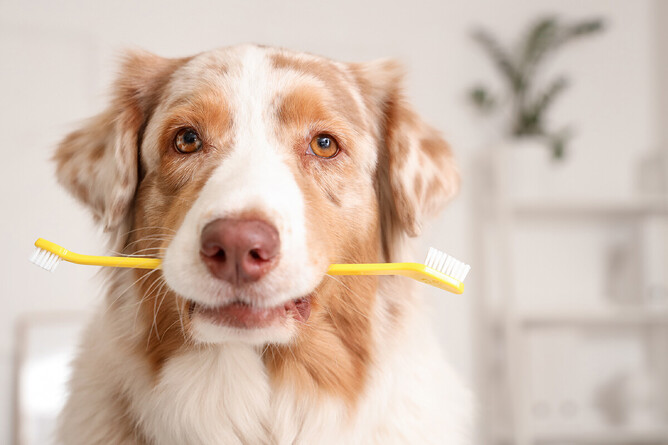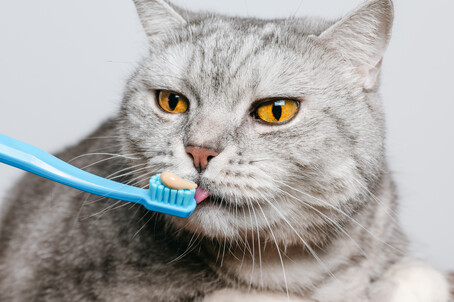Our companion animal clinical lead, Dr Oliver Young, who has a special interest in animal dentistry, shares his experience surrounding dental health in our pets, what you can do to prevent dental disease, as well as the positive advances and treatments we now have available.
I've been a veterinarian for 35 years, and during that time, there have been many significant advancements in animal healthcare. Among these, the most notable is in the field of animal dentistry.
When I graduated, we had little to no dental care training; consequently, oral diseases were often overlooked. Thankfully, those days are behind us. We now understand that dental disease causes discomfort and can affect vital organs and systems in the body. Advancements in dental facilities and techniques mean that many dental issues are treatable, which gives us the ability to improve their quality of life positively.
In severe dental disease, we have the option of extracting teeth to alleviate pain and discomfort. However, we strive to save important teeth whenever possible. We can now offer endodontic and orthodontic services to help with this. Some of these treatments require a specialist, and we are fortunate to have one visit us in Invercargill as needed.
Proactive dental care at home
As with most diseases, prevention is better than cure. Studies show that by age three, 70-85% of cats and dogs have some form of dental disease.
We recommend considering home dental care to reduce or delay this disease. The most effective method is to brush your pet's teeth with animal toothpaste. Although this can be difficult to implement, we provide information in our clinics on how to successfully start a brushing programme. With consistent effort, studies have shown that you can reduce dental disease by up to 93%, which is worth the effort!
Other preventive options include special dental diets, food and water additives, and special dental toys and treats.
Regular check-ups
Professional dental assessments and cleanings for your pet are crucial for maintaining a healthy mouth, just as they are for people.
The frequency of these cleanings will vary based on individual factors such as breed, home dental care, and diet, but they are often needed every one to three years. Your veterinarian will determine if this is necessary during the annual health check.
Other risks
Another significant cause of dental disease is broken teeth. While some instances, such as road traffic accidents, falls, or injuries from other animals, are unavoidable, many fractured teeth are preventable.
For example, many issues arise from pets chewing on hard objects. Some dogs will chew on stones, which can easily break their teeth. A less obvious culprit is the feeding of bones. As veterinarians, we encounter numerous problems related to bones, including broken teeth, diarrhoea, constipation, intestinal obstruction, lacerations, choking, and potential risks from E. coli and Salmonella. The USA Food and Drug Administration (FDA) has warned pet owners against feeding bones due to these risks.
As a general rule, you shouldn't feed your pet anything you cannot dent with your fingernail.
If the worst-case scenario occurs and your pet breaks a tooth, it should be assessed by your vet immediately. A vet with a special interest in dentistry can often save a recently fractured tooth by sealing the fracture, which alleviates pain and allows the tooth to continue functioning.
If the last 35 years are anything to go by, the next 35 years will continue to see veterinarians make great new advances in keeping pets happier and healthier throughout their lives.


